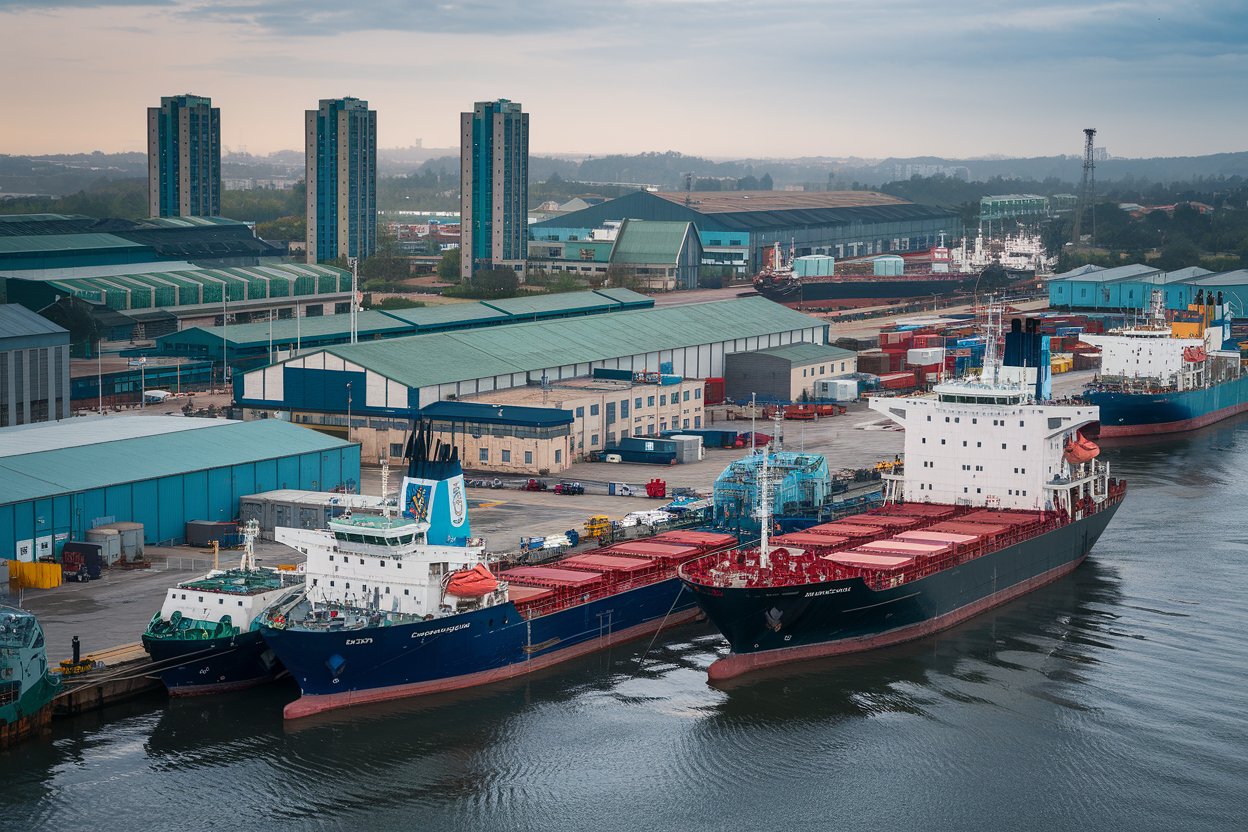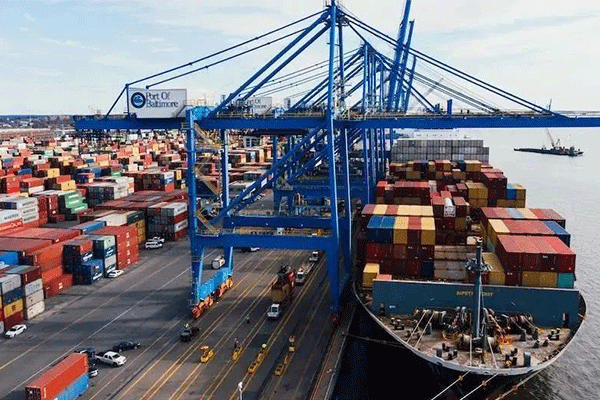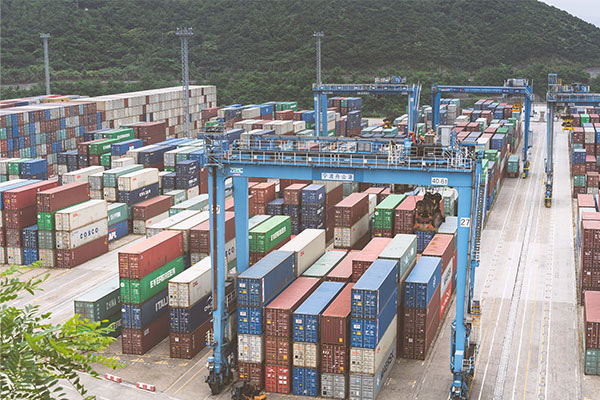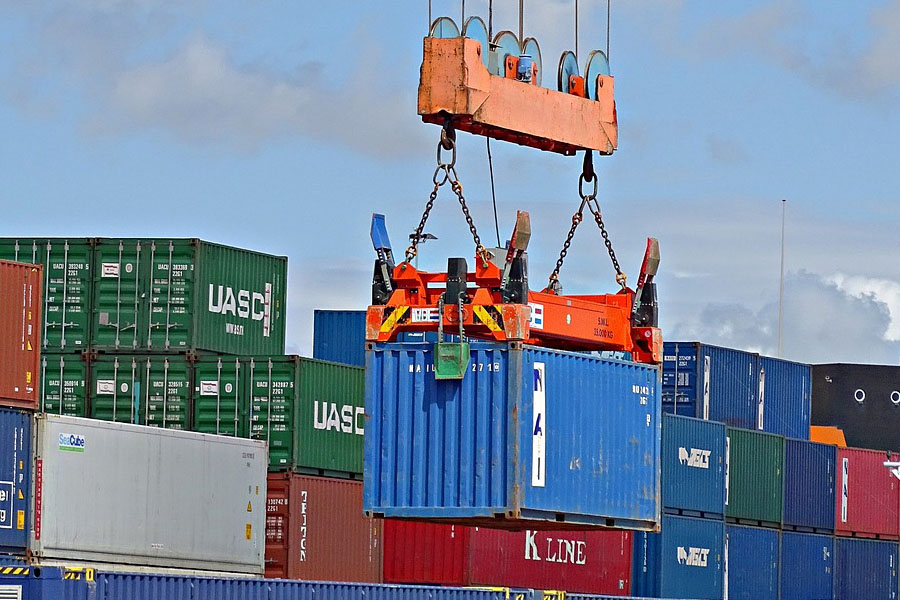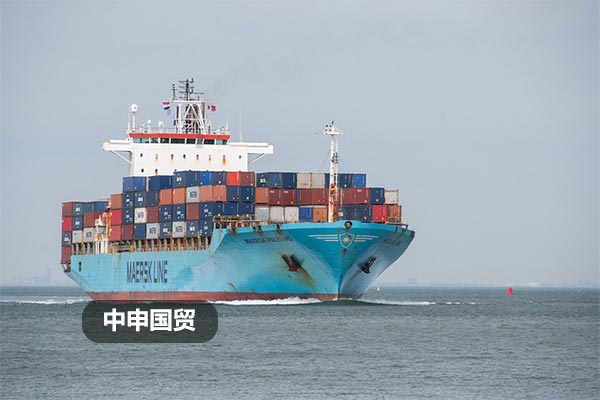- Shanghai Zhongshen International Trade Co., Ltd. - Two decades of trade agency expertise.
- Service Hotline: 139 1787 2118
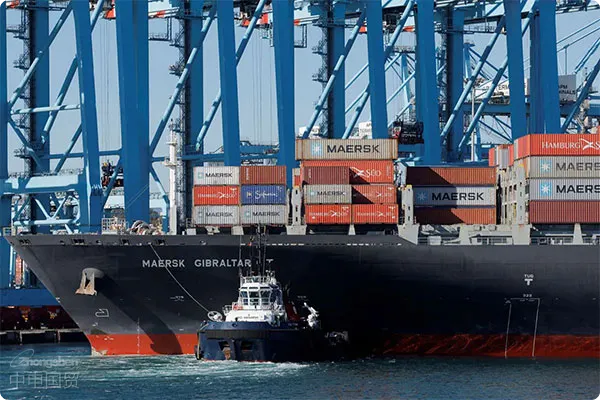
Coping strategies for consolidated cargo when inspected by the UK customs
In international trade practice, consolidated container transportation is a common choice for many small and medium - sizedimport and exportenterprises. However, when the goods arrive at the port of destination and are inspected by the customs, especially when problems are found with other goods in the container, the entire delivery process often comes to a standstill. Recently, a typical case occurred: a batch of consolidated cargo was detained by the UK customs after arriving in the UK because other goods in the container did not meet the import regulations, causing the customers delivery time to be postponed again and again.
Analysis of the common processes of customs inspection
According to the standard operating procedures of the UK customs, when some goods in the consolidated cargo do not meet the import regulations, the following stages are usually involved:
- Preliminary inspection stage: Customs officers conduct a preliminary inspection of the suspicious goods to confirm whether there are any violations.
- Detailed inspection stage: Conduct a more in - depth inspection and assessment of the problematic goods
- Disposal decision stage: The customs makes decisions on destruction, return of goods or other handling methods based on the inspection results
- Release procedure stage: Handle the release procedures for compliant goods
In actual operation, the time required for each stage may vary depending on the specific situation. Judging from the case description, the goods arrived at the port on February 20, and were ready to be released on March 12, but were detained again on March 14 due to newly discovered problems, which indicates that the customs inspection may have entered a more in - depth stage.
Key factors affecting the processing time
Based on 20 years offoreign tradepractical experience, the processing time of LCL (Less - than - Container - Load) goods after being detained by the customs is affected by various factors:
- Nature of the problem: There is a big difference in processing time depending on whether the goods have simple document problems or are substantial contraband.
- Customs workload: During peak seasons, the customs is short - staffed, and the processing speed will slow down significantly.
- Agent efficiency: The professional ability and response speed of local customs clearance agents are crucial.
- Document completeness: Whether the consignor can provide the supplementary documents required by the customs in a timely manner
Particularly noteworthy is that UK customs has especially strict inspections for certain specific goods (such as food, pharmaceuticals, animal and plant products, etc.), and processing time is often extended. From the description of prepared for destruction in the case, it may involve relatively serious violations.
Professional advice: How to accelerate the processing process
In the face of this situation, the following professional measures are recommended:
- Keep information unblocked: Require the customer to communicate with the local agent at least once a day to obtain the latest progress.
- Two - way communication: At the same time, contact the UK side through your own freight forwarder to obtain second - hand information.
- Prepare an emergency plan: Evaluate the value of the goods and the possible warehouse rent, and consider abandoning the goods if necessary.
- Document backup: Prepare a full set of electronic trade documents to respond to the customs supplementary requirements at any time.
In actual operation, we found that many delays actually stem from poor information transmission. It is recommended to require the agent to provide the written notice or decision of the customs, which helps to accurately judge the severity of the problem.
Response strategies for the UK warehouse rent problem
The port storage fees in the UK are indeed a headache, especially in major ports such as the Port of London, where the fees may be as high as £100 - £200 per day. In response to this pain point, it is recommended:
- Apply for rent - free period in advance: Apply to the port through an agent for a reduction or exemption of storage fees during the inspection period
- Purchase insurance: Consider insuring against cargo delay to transfer part of the losses
- Shipment in batches: For goods with high time - sensitivity, it can be considered to change the way in the futureAir Transportationor express delivery
From a practical perspective, if the inspection time exceeds 2 weeks, the storage fees may exceed the value of some low - value goods. At this time, difficult business decisions need to be made.
Suggestions for long - term preventive measures
To avoid similar situations from happening again, it is recommended to improve the business process in the following aspects:
- Choose LCL partners carefully: Try to cooperate with freight forwarders with good reputations and understand the specific situation of LCL goods
- Strengthen contract terms: Add liability clauses regarding LCL goods issues to the transportation agreement
- Improve the quality of documents: Ensure that all documents accompanying the goods are accurate and complete to reduce the probability of triggering inspections
- Consider independent inspection: For high - value goods, third - party inspection before container loading can be considered
International trade is full of variables, but through perfect risk management measures, we can minimize uncertainties. Remember, in cross - border logistics, prevention is always more cost - effective than remedy.
Finally, for the current case, based on experience, if the problematic goods do need to be destroyed, the processing time may vary from 1 to 3 weeks. It is recommended that the customer be mentally prepared and actively follow up to strive for early pick - up. After all, in the marathon of international trade, patience and professionalism are equally important.
Related Recommendations
Contact Form
? 2025. All Rights Reserved. Shanghai ICP No. 2023007705-2  PSB Record: Shanghai No.31011502009912
PSB Record: Shanghai No.31011502009912
